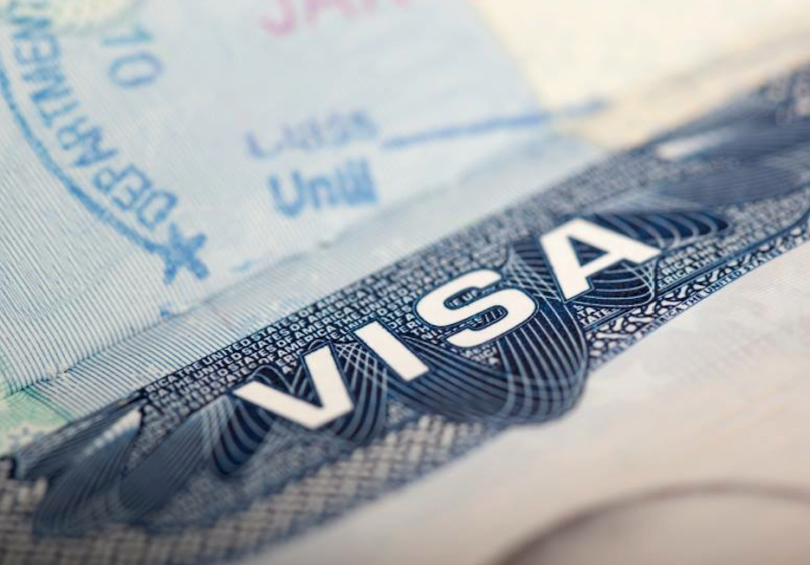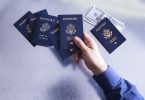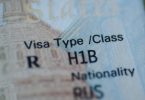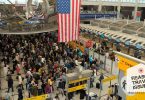Starting October 1, Colombians and other foreign nationals seeking to visit the United States will face significantly higher visa fees, following the approval of new immigration measures contained in the “One Big Beautiful Bill” pushed by U.S. President Donald Trump and passed by Congress.
Under the new rules, applicants for B-1 (business) and B-2 (tourism) visas — as well as student (F/M), cultural exchange (J), and employment-related visas (H-1B, L, O, P, and R) — will see fee hikes of up to 135%. The cost of applying for a U.S. tourist or business visa will rise from approximately COP $739,678 (USD $185) to USD $435.
The new legislation introduces a mandatory “visa integrity fee” of USD$250 for all nonimmigrant visa categories. This fee is separate from the regular visa application charge and cannot be waived. It must be paid upon visa issuance and applies to all travelers entering the U.S. for tourism, business, academic programs, or temporary work.
Additionally, a separate charge known as the Form I-94 fee — required for most travelers entering the U.S. — will increase fourfold, from $6 to $24.
The U.S. Congressional Budget Office (CBO) estimates that the visa integrity fee could generate up to $28.9 billion in revenue over the next decade, helping reduce the federal deficit. Although the law allows for fee reimbursements to those who fully comply with their visa conditions — such as avoiding unauthorized employment or not overstaying their visa by more than five days — officials expect that only a small fraction of travelers will seek reimbursement, particularly since most visas are valid for multiple years.
The U.S. Department of State is expected to take several years to implement the reimbursement process, and there are currently no mechanisms in place for rapid claims or automatic refunds.
According to the U.S. Congressional Research Service (CRS), more than 10.4 million nonimmigrant visas were issued in 2023. Between 2016 and 2022, between 1% and 2% of these visa holders overstayed their legal period of admission in the U.S. However, CRS data also reveals that approximately 42% of the 11 million undocumented immigrants currently residing in the United States originally entered the country legally, but overstayed their visas.
The visa integrity fee is part of a broader attempt by U.S. lawmakers to monitor and reduce visa overstays, a security concern that gained prominence after the September 11, 2001 attacks. Although Congress mandated the development of an automated entry-exit system in 1996, it has repeatedly voiced concern over the government’s limited ability to fully track individuals who exit the country, particularly through land borders.
For Colombian travelers, the new fees represent a new financial obstacle. A recent comparative study of international visa costs reveals that New Zealand, the United States, and the United Kingdom have some of the most expensive visa processes for Colombians. The costs, which in some cases now exceed COP$1.6 million (USD $435), are expected to deter some travelers from applying.
Colombia is also among the Latin American countries most affected by U.S. visa denials. According to U.S government records, more than 106,000 Colombian visa applications were rejected during the first six months of Donald Trump’s presidency — an increase of 2,800% compared to the same period before his term began. Colombia currently ranks sixth in Latin America for the number of denied visa applications.
Although holding a U.S. visa does not guarantee entry, it allows travelers to approach a port of entry and request admission. U.S. Customs and Border Protection officers are responsible for inspecting travel documents, conducting onsite interviews, and verifying identities using biometrics and law enforcement databases.
For many Colombians, the increased visa fees come amid perceptions of increasingly restrictive U.S. immigration procedures, while alternative options to spend on vacations overseas include visa-free travel within the Schengen community of nations, as well as on arrival entry visas to Turkey and destinations across the Middle East.
While the Trump-era “One Big Beautiful Bill” aims to bolster national security and reduce illegal overstays, critics also claim that it places a disproportionate burden on international travelers — especially first-time tourists from Latin America – who are willing to spend on visiting important tourism attractions across the U.S, especially in Miami and South Florida.










